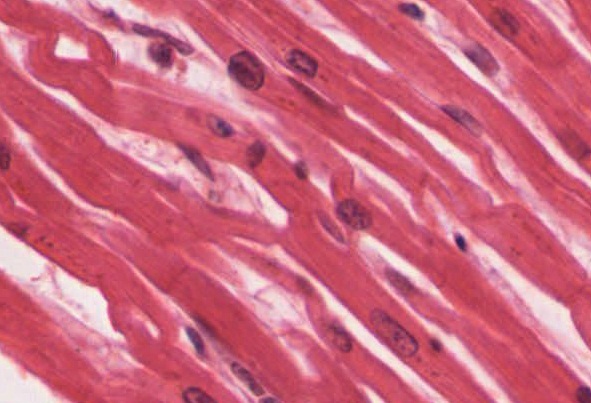Summary of the article Tunable electroconductive decellularized extracellular matrix hydrogels for engineering human cardiac microphysiological systems. Tsui JH, Leonard A, Camp ND, Long JT, Nawas ZY, Chavanachat R, Smith AST, Choi JS, Dong Z, Ahn EH, Wolf-Yadlin A, Murry CE, Sniadecki NJ, Kim DH. Biomaterials. 2021 May;272:120764. doi: 10.1016/j.biomaterials.2021.120764. Epub 2021 Mar 18. PMID: 33798964 Free PMC article. https://pubmed.ncbi.nlm.nih.gov/33798964/
The muscle cells in the heart are called cardiomyocytes. They can be produced in the lab from stem cells, which are cells that do not have a specific function yet. When engineered in the lab, these cardiomyocytes can be used for cardiovascular research modeling, for example, to test a new drug or to model a cardiovascular disease.
The success of this type of research and the reliability of the results depend on the environment where the cells are engineered.
This study focused on designing a new material called hydrogel that can be used as a platform to engineer cardiomyocytes and cardiac tissue, and where drug assessment, research testing, and modeling are performed reliably.
The hydrogel is hybrid because it contains synthetic and natural components.
The study showed that in this hydrogel, cardiomyocytes thrive because the hydrogel can be mechanically and electrically tuned. Heart tissues engineered in these hydrogels showed an improved contractile function, better conduction velocity, and better cell stiffness.
The hydrogel was also tested as a bio-ink, a material used to engineer an organ or tissue using 3D bioprinting. Cardiac tissue was printed using this hydrogel and then the tissue was used to test a drug called Cisapride, commonly prescribed to treat heartburn, which can potentially provoke arrhythmia (a change in the heartbeat rhythm).
During the study, cardiac tissue was exposed to clinical doses of Cisapride, and arrhythmia was observed. These results indicate that cardiac tissue grown in this hydrogel produces reliable data when used to test the effects of Cisapride on cardiomyocytes. Thus, it can be utilized to test other drugs confidently.
Given that cardiovascular diseases are a major healthcare concern, it is important to have reliable ways to research, test drugs, and mimic the response of the cardiac cells when submitted to treatment. This hydrogel is a promising platform to create cardiac tissues for cardiovascular research.

